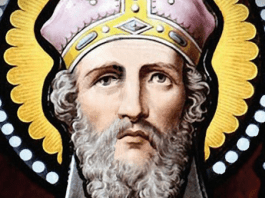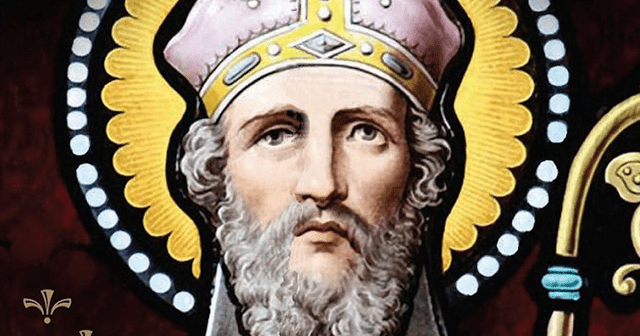
Gundulf, a Lombard citizen of Aosta, and Ermenberga of Burgundian descent birthed Anselm. From his mother, Anselm inherited piety and a thirst for knowledge at an early age. His biographer, Eadmer, recounts childhood memories shared by Anselm, including a vision where he imagined Heaven atop the mountains surrounding his home.
As a child, Anselm attempted to join a monastery but was denied by the abbot, fearing parental backlash. He then prayed for illness to persuade the monks, but despite falling ill, he was still denied entry. This disappointment coincided with the loss of his mother, which weakened his initial resolve. His father’s harshness eventually drove Anselm from home, leading him to travel through Mont Cenis into Normandy.
In Normandy, Anselm found his calling at the Abbey of Bec under Lanfranc’s tutelage. His learning there prepared him for roles he initially resisted, such as prior and eventually abbot after Lanfranc. Anselm’s leadership at Bec was marked by his gentle handling of initial resistance and significant contributions to philosophy and theology.
Anselm’s election as Archbishop of Canterbury came at a turbulent time. He resisted the role but was compelled to accept by King William Rufus’s insistence and a dramatic public ceremony. As archbishop, he navigated conflicts with the monarchy over church freedoms and property, reinforcing the church’s autonomy from royal interference, particularly in the contentious issue of investitures.
His tenure faced numerous challenges, including disputes over the rightful pope, which led Anselm to Rome to argue his allegiance to Pope Urban II. Despite King Henry I’s repeated attempts to sway Anselm to accept royal investiture, Anselm remained firm, resulting in legislative changes that favored church authority.
Anselm’s philosophical contributions were profound, notably his ontological argument for God’s existence, which continues to influence theological and philosophical thought. His life, marked by devotion and intellectual rigor, made him a pivotal figure in religious and academic circles, respected for his moral and scholarly resolve.
Anselm’s writings, foundational yet not as frequently cited as other theologians, offer deep insights into Catholic doctrines. His thoughts on free will, the Holy Spirit, and atonement are particularly noted for their depth and foresight.
Photo credit: Public Domain via Wikimedia Commons
The post Saint Anselm, Doctor of the Church appeared first on uCatholic.
Daily Reading
Friday of the Fourth Week of Easter
Reading I Acts 13:26-33 When Paul came to Antioch in Pisidia, he said in the synagogue: “My brothers, children of the family of Abraham, and those others among you who…
Daily Meditation
The Warmth of a Fire
Click here for daily readings Last fall I began working at a Christian facility with a homey, country feel to it. The basic structures were all built in a log…




